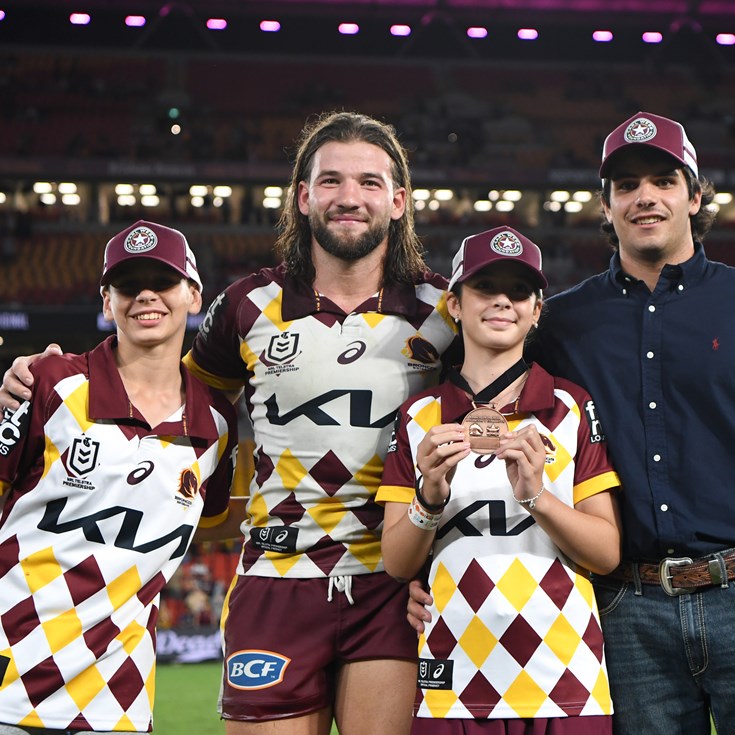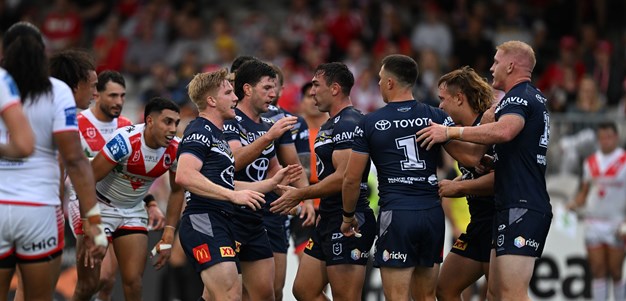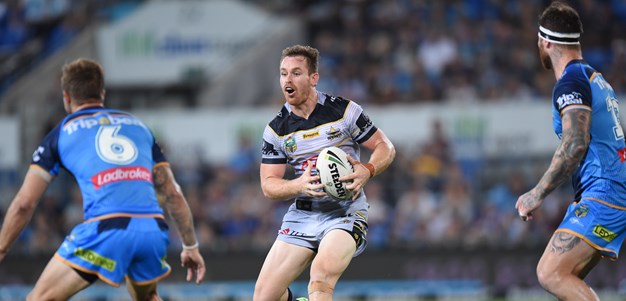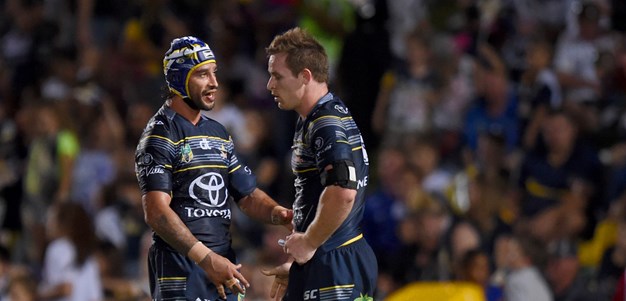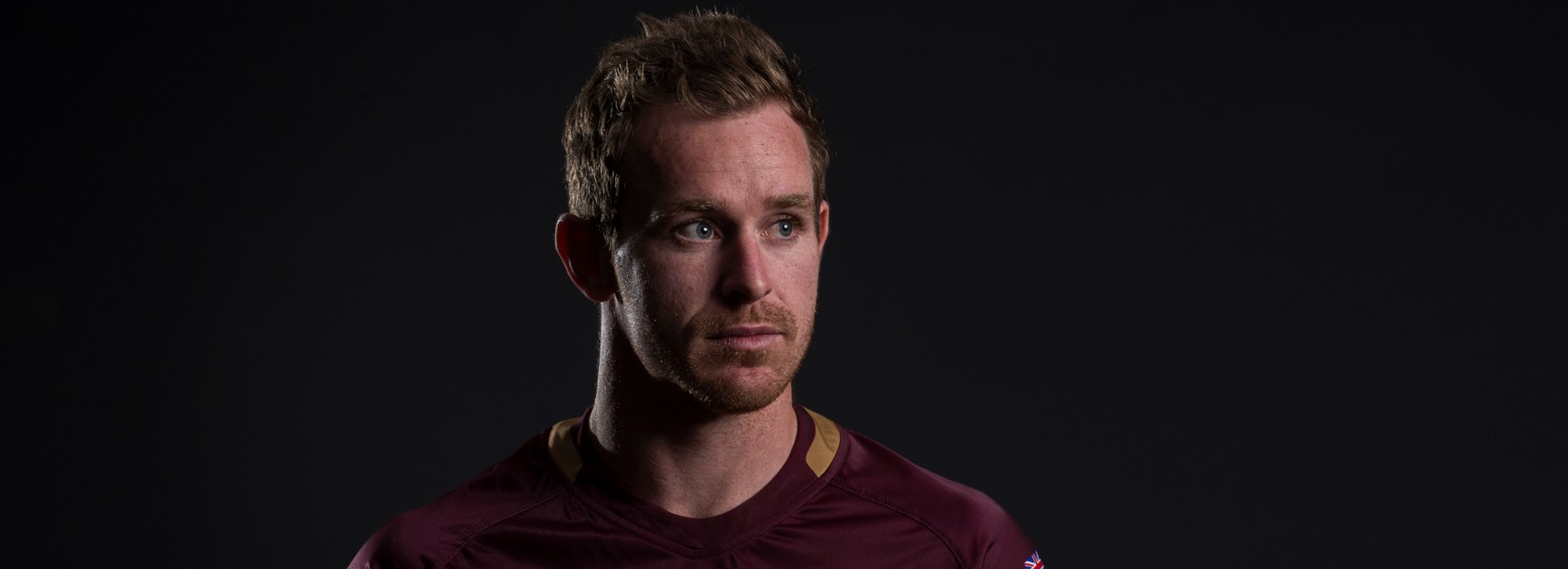
It has been over five years since the death of former North Queensland player Alex Elisala, but for injured Cowboys five-eighth Michael Morgan, it still feels like yesterday that he received the agonising phone call.
A best mate gone, in the space of 24 hours after playing the game he loved.
Morgan still has the initials "A.E" on his Instagram page, he's never removed the profile picture of he and his childhood friend.
The death of Elisala in 2013, the second player lost to suicide in as many months, sparked the NRL to review its support programs for up-and-coming stars trying to reach their sporting goals in the game.
This wasn't a one-off occurrence, a tragic trend was forming.
"I'd been fortunate to not lose anyone close to me," Morgan told NRL.com, reflecting on the loss of Elisala as he prepares the launch of the Road to Resilience campaign in Brisbane on Wednesday.
"After things happened with Alex, football took a backseat for me, it wasn't a priority at the time."
At 26, Morgan has done it all on the paddock in a five-year golden period - securing a premiership ring, enjoying Queensland Origin series wins, Four Nations success and more recently a World Cup campaign with the Kangaroos – even at times when he's admitted his mind hasn't been right.
But a State of Mind ambassador role in mental health outweighs them all. In the same season as his 2015 heroics, two other players fell victim to the black dog in North Queensland with lower-graders Hayden Butler and Regan Grieve taking their lives in January.
Morgan will hand out resilience journals to the public at Suncorp Stadium on Wednesday night, almost 12 months to the day after he was preparing to take down NSW at the same venue in last season's Holden State of Origin decider.
The journal encourages everyday Australians to write down their emotions in detail over a 21-day period.
"Life can be hard and that's why the resilience journal is good," Morgan said.
"It was just something I thought I could benefit from being a part of it. I could learn more about mental health.
"I'd never gone through something like losing Alex and in that way. When you go through resilience you learn how to process. There is no manual with how to deal with anything but it's about doing your best each day.
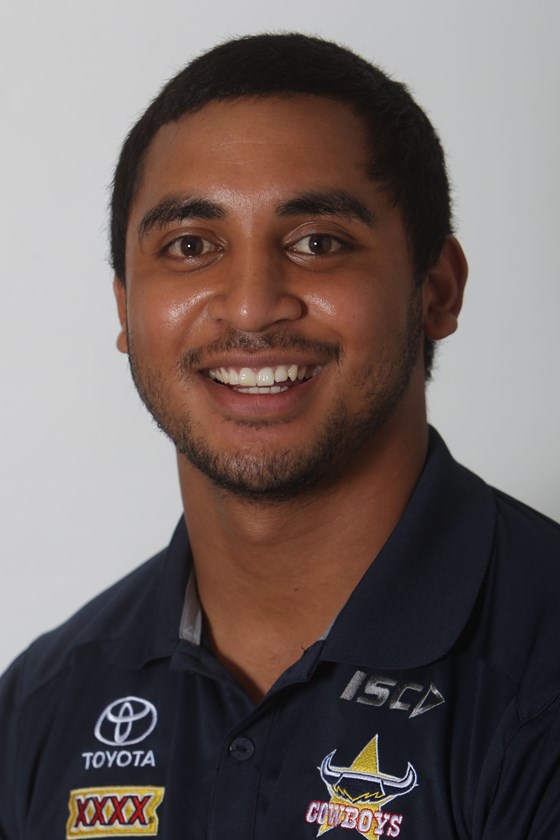
"Things that I've been through in the past it was an opportunity for me to learn more and help someone else along the way.
"I think the more people who have access with the journals and can give it a proper go, I'd encourage everyone to try.
"You might not think it's your thing but the chances are mentally you will be more positive."
Sidelined with a season-ending biceps tear, Morgan said the setback was minimal compared to what he had seen of other people suffer through. He reflected on the media reporting on his biceps, while Cowboys forward Sam Hoare suffered a season-ending knee injury - his third of his career - on the same night. Hoare's injury was almost missed altogether.
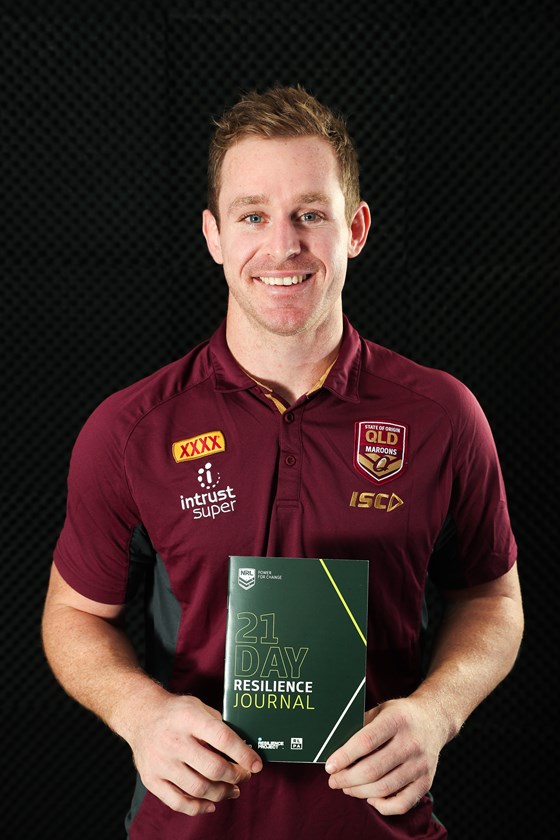
"As time has gone on I've learnt to deal with different things," Morgan said.
"They're the main things you practice in the journal. The main one that sticks out for me is gratitude. You learn to appreciate the good things you have in your life.
"They're often significant and without them, you wouldn't be as happy as you are.
"Last year was very good and everything was going my way. It's easy to take all the good when there is not much bad in between. This year from the start trying to play through an injury that wasn't going away was mentally a challenge week-to-week for me.
"With the season-ending injury, I'm OK with it. I've dealt with it and processed it. I look at it from the outside that I'm lucky enough to still have a contract and be in a position where at the start of next season I'll be fit to play again.
"The whole scheme of things and throughout my career, missing nine weeks of the season won't be too big overall."
For emerging rugby league players though, it continues to shape as one of the code's biggest challenges in supporting talented youngsters who won't realise their dream because of injury.
Of the recent players lost to suicide in sport, many friends and family have put it down to pressure in sport and the uncertainty around their playing future.
"Only a small percentage of people make the NRL and again even smaller stay for a long period of time," Morgan said.
NRL State of Mind 2018 - Road to Resilience
"It's a very gruelling and unforgiving sport in the way things can change so quickly. When you work so hard to get there and find out it's a challenge to stay there.
"You hear people say the easiest part was getting there, to stay there and have a long career is the hardest thing.
"When young players are coming through and have their minds fixated on making the NRL and then when injuries get thrown your way it can get tough.
"The game has come a long way in that people are aware there is more help. As whole, we've accepted that mentally it is a real challenge for players. It is encouraged to seek the help because it's there."
State of Mind program is proudly supported by QLD Government (lead investor), Western Australia Government, Northern Territory Government & Australian Government.
Help is available 24/7 for anyone who has mental health issues by calling Lifeline Australia on 13 11 14
For further information on the NRL State of Mind program, click here

